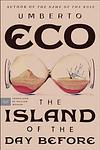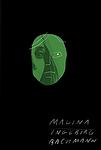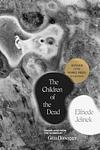The Greatest Italian, Austrian "Postmodern" Books of All Time
Click to learn how this list is calculated.
This list represents a comprehensive and trusted collection of the greatest books. Developed through a specialized algorithm, it brings together 300 'best of' book lists to form a definitive guide to the world's most acclaimed books. For those interested in how these books are chosen, additional details can be found on the rankings page.
Genres
Postmodernism is a literary movement that emerged in the mid-20th century, characterized by a rejection of traditional narrative structures and a focus on self-reflexivity and intertextuality. Postmodern literature often features fragmented narratives, unreliable narrators, and a blurring of the lines between reality and fiction. It is a genre that challenges the notion of a single, objective truth and instead embraces the idea of multiple perspectives and interpretations. Postmodern literature is often seen as a response to the modernist movement that preceded it, and it continues to be a popular and influential category for contemporary writers.
Countries
Date Range
Reading Statistics
Click the button below to see how many of these books you've read!
Download
If you're interested in downloading this list as a CSV file for use in a spreadsheet application, you can easily do so by clicking the button below. Please note that to ensure a manageable file size and faster download, the CSV will include details for only the first 500 books.
Download-
1. If on a Winter's Night a Traveller by Italo Calvino
The novel is a postmodernist narrative that follows the adventures of the reader, who is trying to read a book called "If on a Winter's Night a Traveller." However, the reader keeps encountering obstacles that prevent him from finishing the book, including printer's errors, censorship, and interruptions from other characters. The story is interspersed with the beginnings of ten different novels, each interrupted at a moment of suspense. The book is a meditation on reading, writing, and the nature of narrative itself.
-
2. Foucault's Pendulum by Umberto Eco
This novel follows three intellectual friends who work at a small publishing house. As a joke, they start inventing a conspiracy theory about a secret society that has been manipulating world events for centuries. However, as they delve deeper into their own fabrication, they begin to lose sight of what's real and what's not. Their lives take a dangerous turn when actual secret societies believe they hold the key to a universal secret and will stop at nothing to obtain it.
-
3. Correction by Thomas Bernhard
"Correction" is a complex narrative revolving around the life of a man named Roithamer, a genius obsessed with constructing an architectural masterpiece, the Cone, in the center of the Kobernausser forest. The story is told through the perspective of his friend who is reading Roithamer's notes after his suicide. The novel explores themes of obsession, isolation, and the pursuit of perfection, while also delving into the protagonist's troubled relationships with his family and society.
-
4. Concrete by Thomas Bernhard
The book is a darkly introspective narrative that delves into the mind of a reclusive, obsessive intellectual who is struggling to complete his scholarly work on the composer Mendelssohn. As he grapples with his own ailments and the perceived mediocrity of his surroundings, the protagonist's stream-of-consciousness monologue reveals his deep-seated anxieties, self-loathing, and profound isolation. The narrative is a relentless examination of the protagonist's psyche, showcasing his critical view of society and his own personal relationships, which are fraught with tension and dysfunction. Through this, the novel explores themes of artistic creation, intellectual elitism, and the suffocating nature of expectations and familial obligations.
-
5. Woodcutters by Thomas Bernhard
Woodcutters is a darkly humorous critique of Vienna's artistic elite. The story takes place over the course of a single evening, as the narrator attends a dinner party in honor of a recently successful actor. As the evening progresses, he reflects on the pretentiousness and hypocrisy of the guests, the mediocrity of their artistic achievements, and the tragic suicide of his former lover. The novel is a scathing indictment of the vanity and self-delusion of the artistic community.
-
6. The Castle of Crossed Destinies by Italo Calvino
"The Castle of Crossed Destinies" is a unique narrative where the characters, unable to speak, tell their stories through the use of tarot cards. The book is divided into two parts, each set in a different castle, and features a variety of characters, including knights, kings, and queens, who each use the cards to weave their own tales. The stories are interconnected, creating a complex web of tales that explore themes of fate, destiny, and the interconnectedness of human experiences.
-
7. Wittgenstein's Nephew by Thomas Bernhard
"Wittgenstein's Nephew" is a semi-autobiographical novel that explores the friendship between the narrator and his friend Paul, who is the nephew of the famous philosopher Ludwig Wittgenstein. The story takes place in Vienna and is set against the backdrop of the Austrian mental health system. The novel delves into themes of sanity, insanity, and the fine line that separates the two, while also offering a critique of Austrian society. It is a meditation on the nature of illness, both physical and mental, and the impact it has on personal relationships and one's perception of the world.
-
8. The Last World by Christoph Ransmayr
"The Last World" is a novel that reimagines the exile of the Roman poet Ovid in a remote village at the edge of the Black Sea. The story is set in a mythical time and place, where the villagers are haunted by strange transformations and echoes of Ovid's metamorphoses. The novel blurs the lines between the real and the imaginary, the past and the present, and the world of the living and the dead, creating a surreal and dreamlike atmosphere.
-
9. The Loser by Thomas Bernhard
"The Loser" is a philosophical novel that revolves around the complex relationship between three friends who are all piano virtuosos. The narrative is driven by the protagonist's obsession with his friend's suicide, which he believes was triggered by the realization that they could never surpass the genius of their third friend. The book delves into the protagonist's psyche as he grapples with themes of talent, ambition, failure, and the destructive power of comparison.
-
10. Mr. Palomar by Italo Calvino
The book is a contemplative exploration of the world through the eyes of the titular character, Mr. Palomar, who seeks to understand the complexities of existence through meticulous observation and reflection on seemingly mundane subjects. From watching waves on a beach to contemplating a cheese shop, his attempts to impose order and rationality on his experiences often lead to more philosophical inquiries and existential musings. Through these vignettes, the narrative delves into themes of human perception, the nature of knowledge, and the interplay between the observer and the observed, all conveyed with a blend of humor, irony, and poignant insight.
-
11. T Zero by Italo Calvino
"T Zero" is a collection of complex, imaginative stories that blend scientific concepts, mathematical structures, and literary experimentation. The work challenges the boundaries of time, space, and narrative convention, weaving together a tapestry of tales that explore the nature of reality, causality, and human perception. Through a series of thought-provoking vignettes, the book delves into the paradoxes of existence, employing a playful yet profound use of language to question the very framework of storytelling and the universe it attempts to describe.
-
12. The Island Of The Day Before by Umberto Eco
In "The Island of the Day Before," a man finds himself stranded on a deserted ship in the South Pacific during the 17th century. As he struggles with his isolation and memories of his past life, he becomes obsessed with solving the problem of calculating longitude, a crucial challenge for navigators of his time. The narrative weaves intricate layers of history, science, and philosophy, exploring themes of knowledge, time, and the elusive nature of truth. The protagonist's reflections and adventures confront the limits of human understanding and the intersections of myth, science, and the power of storytelling.
-
13. Malina by Ingeborg Bachmann
This novel delves into the complex inner world of a female protagonist living in Vienna, who is torn between two contrasting loves: one with a passionate, consuming lover, Ivan, and the other with a figure named Malina, embodying stability and intellectual companionship. Set against a backdrop of post-war Austria, the narrative explores themes of identity, gender, and the trauma of history, all while blurring the lines between reality and the protagonist's psychological disintegration. The protagonist's struggle for self-definition and coherence in a fragmented world is central to the story, culminating in a haunting and ambiguous conclusion that challenges the boundaries of narrative and self.
-
14. The Children Of The Dead by Elfriede Jelinek
This novel is a unique and haunting exploration of memory, history, and the legacy of the Holocaust in Austria, presented through a complex narrative that blends elements of horror, satire, and social critique. Set in a stylized and eerie version of the Austrian countryside, the story unfolds around a protagonist who embarks on a journey that intertwines with the lives of the undead, revealing the persistent shadows of World War II and the Holocaust on contemporary society. The narrative's challenging structure, incorporating dense streams of consciousness and a shifting perspective, serves as a vehicle for the author's incisive commentary on issues of national identity, collective memory, and the dangers of forgetting the past. Through its innovative use of language and form, the book confronts readers with the unsettling realities of history's impact on the present, making it a compelling and thought-provoking read.
Reading Statistics
Click the button below to see how many of these books you've read!
Download
If you're interested in downloading this list as a CSV file for use in a spreadsheet application, you can easily do so by clicking the button below. Please note that to ensure a manageable file size and faster download, the CSV will include details for only the first 500 books.
Download












